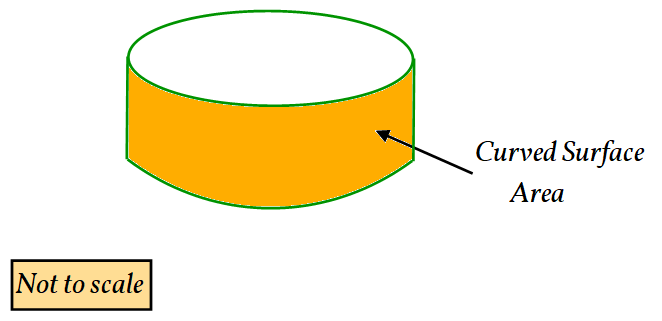#color(blue)("Setting up the initial condition")#
Consider the ratio in the order given:
let the unknown value be represented by #x#
Total surface area # : # curved surface area
#color(white)("dddddd") 2 color(white)("dddddd."):color(white)("ddddd")1#
#color(white)("ddddd")616color(white)(".") cm^2 color(white)("dd"):color(white)("ddddd")x#
For ease of calculation write the ratio in the #"FORMAT"# of a fraction. It is very important that you remember that the #"DIRECT RELATIONSHIP"# of the numbers is #"NOT"# that of a fraction.
#("Total surface area")/("curved surface area") -=2/1-=616/x#
It would be better if the #x# was on the top so turn everything upside down.
#("curved surface area")/("Total surface area") -=1/2-=x/616#
#color(mediumturquoise)("So curved surface area "=x=1/2xx616 = 308color(white)(.)cm^2)#
~~~~~~~~~~~~~~~~~~~~~~~~~~~~~~~~~~~~~~~~
#color(blue)("Determine the area and circumference of one end (circular disk)")#
#"Total area "-" curved surface are = area of BOTH ends"#
#color(white)("dd")616color(white)("dd.dd")-color(white)("dddddd")308 color(white)("dddddd")=color(white)("dddd") 308#
So the area of 1 end is #308/2 = 154color(white)(".")cm^2#
End area #=pir^2color(white)("d")->color(white)("d")154=pir^2#
#color(white)("dddddddddd")->color(white)("d") r=sqrt(154/pi)#
#color(red)("End curcumference "=w=2pir =2sqrt(154/pi))#
~~~~~~~~~~~~~~~~~~~~~~~~~~~~~~~~~~~~~~~~~
#color(blue)("Determine the height of the cylinder") #
If we open up the curved sides of the cylinder we have a rectangle.
The width of this rectangle is the circumference of the circle
Let the height of the rectangle be represented by #h#
Then #color(white)("d")"area = width x height"#
#color(white)("dd.ddd")color(mediumturquoise)(308) = color(red)(2sqrt(154/pi))xxcolor(white)("d")h#
#color(white)("ddddddd")h=color(mediumturquoise)(cancel(308)^154)/(color(red)(cancel(2)^1sqrt(154/pi)))#
~~~~~~~~~~~~~~~~~~~~~~~~~~~~~~~~~~~~~~
#color(blue)("Calculate the volume")#
#V=hxxw#
#V=154/(sqrt(154/pi))xx 2sqrt(154/pi)#
#V=154xx2=308 cm^3#


